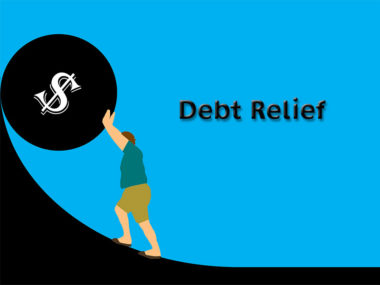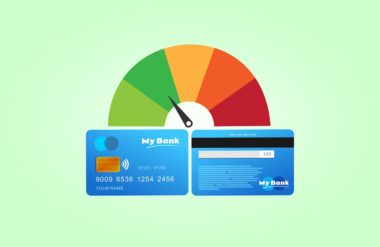Ready to get the burden of student loan debt off your back? Loan forgiveness and loan discharge can make your student loan debt disappear entirely. However, for most borrowers, a long-term strategy of slowly paying down your debt is more practical.
Table of Contents
Loan Forgiveness/Cancellation
You can get rid of student loan debt through loan forgiveness or loan cancellation. When this happens, you are not required to pay your loan debt anymore. You can look into three possible paths toward student loan debt forgiveness or cancellation.
Serve Your Country
One of the most iconic ways to cancel your student debt is by serving your country. You can do this by enlisting in a branch of the United States military. Spending time serving the United States has numerous benefits, and getting rid of your student debt without having to make years and years of payments in the future is a major bonus. You’ll earn this bonus through a military student loan forgiveness program. How much assistance you get will vary based on which branch of the military you join; overall, the ceiling for assistance is $65,000.
Pursue a Career in Public Service
If the military isn’t an option, you can still reduce the amount of time spent making loan payments by working for a significant amount of time in a public service field. The Public Service Loan Forgiveness Program allows you to cancel your remaining direct loan debt after making 120 qualifying monthly payments for 10 years. You must make those payments under an income-driven repayment plan while working full-time for a qualified employer.
Keep in mind that this option does not revolve around the position you work, but rather the employer you work for. Government organizations, non-profit organizations contributing to the public good, and even groups like AmeriCorps or the Peace Corps qualify for this option.
Research Employers With Student Loan Forgiveness Programs
Another option for straight-up debt forgiveness is to look for an employer that has a student loan forgiveness program. There are many private sector enterprises that provide this perk, including big-name companies like Hulu, Aetna, and Penguin Random House. Most typical employer-run programs involve either matching funds or a set amount of money that is put towards your student loans.
Loan Discharge
While loan forgiveness and cancellation tend to revolve around your employment, loan discharge refers to other life events and circumstances. For instance, if you have a permanent disability, your loans were falsely certified, or your school closed down completely, you may be eligible to have your loans discharged.
Go Back to School
So far we’ve talked about how to get rid of student loans without paying them down. However, if you can’t find a way to have your loans forgiven, canceled, or discharged, all hope isn’t lost. You may want to consider heading back to the classroom. This could sound counterintuitive, but when done strategically, it can be the best option.
Attending school may allow you to defer your loan payments (without interest continuing to accrue) while you’re a student. Of course, this doesn’t get rid of your debt and has the potential to even add to it, but returning to school to complete a degree or get a master’s or a further certification may open doors for higher-paying jobs in the future.
Create a Plan to Pay Off Your Student Loans Faster
While there are multiple ways to avoid paying your loans, at the end of the day you may be stuck making those monthly payments. If that’s the case, there are still ways to get rid of your student loan debt quickly, which often comes with the added benefit of paying less interest over the long term.
Use the snowball method:
This tried and true debt-management tactic is a great way to keep your momentum going. Rather than hopelessly throwing tiny payments at a single, gargantuan debt like your school loans, start by paying off the smallest debts you owe first.
As you pay off those smaller personal debts, you can graduate to larger items like your car loan. Eventually, all you’ll have left are big-ticket items like your house and your school loans. Once you get to that point, you’ll be able to reallocate a much larger amount of money per month towards paying off your student debt as quickly as possible.
Make additional payments:
A great strategy for any debt is to make additional payments. The longer your debt sits unpaid, the more you’ll end up paying in interest. With a 30-year home mortgage, for instance, the price of the home itself nearly doubles once all of the interest is added up. If you pay off the mortgage in a 15-year span, however, it often ends up not just halving the time but the interest as well.
While you may already be locked into a specific length of a loan, making extra loan payments is an excellent backdoor method that can reduce the overall time spent paying back the loan as well as the total interest accrued.
Structure bi-weekly payments:
Another great way to “sneak” in extra payments without even having to think about it is with bi-weekly payments. With bi-weekly payments, you structure your loan payments to take place every two weeks instead of once a month. By paying every other week, you typically end up making two extra payments per year, both of which go entirely towards your principal. Over time, this can take months and even years off of the time it takes to pay down a long-term loan.
Consolidate your federal loans:
Another option is to consolidate your loans. If you have multiple federal student loans, chances are they’re structured under different levels of interest and the repayment schedule varies from one to the next. If that’s the case, you may want to consider bringing all of your debt together into one big loan from a federal lender. This can lock you in at a fixed interest rate and can give you one specific, predictable payment each month, which can help keep you on track and organized as you attempt to pay down your debt more aggressively.
Refinance your private loans:
Finally, if you have a private loan, you may want to look into refinancing options. Private lenders like Earnest, SoFi, and Laurel Road all offer refinanHow to Get Rid of Student Loans | Fiscal Tigercing options. All you need to do is shop for quotes, choose your best rate, and fill out a loan application. If your credit is solid and you have a stable income, chances are you’ll be able to dramatically decrease the amount of interest you’re paying each month.
Image Source: https://depositphotos.com/





